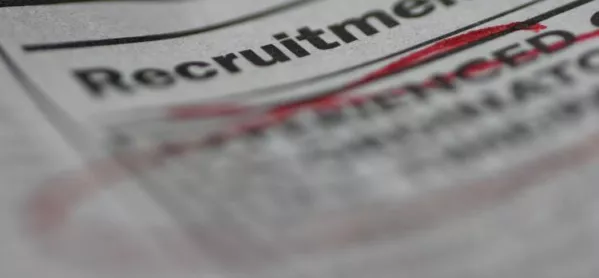More than nine in 10 secondary headteachers are struggling to recruit teachers for English Baccalaureate subjects, new data shows.
According to the Department for Education’s own survey figures, over half of heads said they do not currently have the teaching capacity to achieve the government’s EBacc target.
The DfE has today published the findings of the “school snapshot survey” it carried out last summer.
On the day the DfE published its new recruitment and retention strategy, the figures lay bare the scale of the recruitment crisis which the government is facing.
The survey found that 92 per cent of secondary leaders stated that they have difficulty recruiting teachers for at least one of the five EBacc subject areas - English, mathematics, humanities (history and geography), the sciences and languages.
Difficulties were most commonly reported for science and maths, where 79 per cent and 75 per cent of heads said they had difficulty recruiting teachers respectively.
Just over half flagged difficulties with recruiting modern foreign languages teachers (56 per cent) and English teachers (52 per cent).
The least problematic area, though still an issue for 44 per cent of leaders, was recruiting for teaching jobs in humanities.
They survey also casts doubt on whether the DfE is going to be able to achieve its target for EBacc uptake.
Announced in July 2017, the target is that by 2022, 75 per cent of pupils in Year 10 will be studying EBacc GCSE subjects, and that by 2025, this will rise to 90 per cent of the year group.
This was a downgrading of the government’s original target that 90 per cent of pupils would sit GCSEs in EBacc subjects by 2020. The target was diluted amid concerns about a dearth of specialist subject teachers.
However, today’s figures suggest the lower target is also under threat because of recruitment problems.
Just over half of all secondary school leaders (52 per cent) reported that their schools currently have the teaching capacity to achieve the EBacc ambition.
Forty-three per cent reported that they do not have the capacity and 5 per cent did not know if they did.




